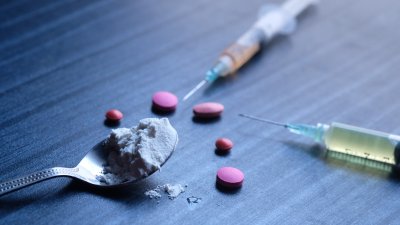
Overdose Awareness
The opioid crisis in the United States is reaching epidemic proportions, with 43,000 of the 61,000 preventable overdoses in 2017 being a result of opioids. Even as the crisis becomes more and more sensationalized in the news, there’s little outreach and generated awareness that works to prevent these unnecessary deaths.
International Overdose Awareness Day is held yearly on the 31st of August to remember those that have died from preventable overdoses. The day generates awareness and provides information about what can be done about the crisis.
If you’re interested in encouraging overdose awareness, there are some things that you can do to help:
- Hold a candlelight vigil on the 31st of August.
- Provide a safe space for the victims of overdose to tell their stories and share their experiences with others.
- Organize an educational program that can be distributed to schools or local libraries. A good topic is the prevention of opioid abuse. Or you can present on the signs of an overdose and what to do. Many local organizations are always willing to partner with volunteers who want to organize an educational program.
- Find out about your state and federal legislation and how it addresses opioid addiction and overdose. If there’s more to be done, write to your representative.
- If you’ve lost a loved one to an overdose, add their name to the Celebrating Lost Loved Ones map on the National Safety Council’s website.
- Become a National Safety Council Safety Ambassador by hosting a community fundraising event. The NSC has a community action kit that you can use as a guide to help you plan the event.
- Buy or create your purple gear, such as pins, shirts, and wristbands to wear on the 31st of August.
- Share the NSC virtual candlelight vigil that takes place on the 30th of August.
A large contributor to the overdose epidemic is the overuse of opioids in the US. This factor is primarily the result of a decades-long marketing campaign that has left many Americans unconcerned about using prescription opioids, believing that their benefits outweigh the risks. Luckily, there are steps you can take to prevent opioid addiction for yourself and your loved ones:
- Dispose of your old prescriptions at a registered disposal location. Many people who misuse opioids get their supply from relatives or friends who have some remaining from an old prescription.
- Request an Opioid Warn-Me label that you can attach to your insurance card. This label is a sign to both pharmacists and doctors that you want to be informed when your prescription contains opioids and whether there is an alternative medication or shorter-term prescription duration.
- Talk to your friends, relatives, and children about the risks of opioid addiction by educating them about the fact that opioids are related to illegal drugs such as heroin, and that they should either be avoided or used with extreme caution.
As opioids take more and more lives each year, it’s up to us to do something about it. By working together to educate people and talking to our representatives to change opioid legislation, we will be able to stop these unnecessary deaths from happening.
You may also need the expertise of a premiere New Jersey personal injury attorney to help you navigate the legal system and any personal injury-related questions or concerns you may encounter regarding opioids. At Maggiano, DiGirolamo & Lizzi, P.C., our attorneys have more than 90 years of combined legal experience and success in personal injury cases. Call us today at (201) 585-9111 for any questions or concerns you may have about your personal injury situation.

















